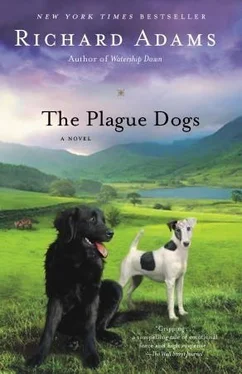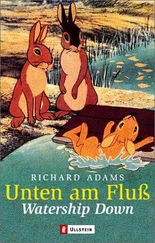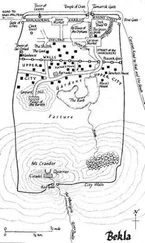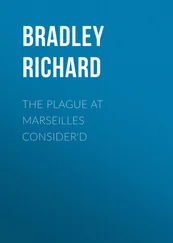Richard Adams - The Plague Dogs
Здесь есть возможность читать онлайн «Richard Adams - The Plague Dogs» весь текст электронной книги совершенно бесплатно (целиком полную версию без сокращений). В некоторых случаях можно слушать аудио, скачать через торрент в формате fb2 и присутствует краткое содержание. Город: New York, Год выпуска: 2007, ISBN: 2007, Издательство: Ballantine Books, Жанр: Природа и животные, Фэнтези, на английском языке. Описание произведения, (предисловие) а так же отзывы посетителей доступны на портале библиотеки ЛибКат.
- Название:The Plague Dogs
- Автор:
- Издательство:Ballantine Books
- Жанр:
- Год:2007
- Город:New York
- ISBN:978-0-345-49402-3
- Рейтинг книги:3 / 5. Голосов: 1
-
Избранное:Добавить в избранное
- Отзывы:
-
Ваша оценка:
- 60
- 1
- 2
- 3
- 4
- 5
The Plague Dogs: краткое содержание, описание и аннотация
Предлагаем к чтению аннотацию, описание, краткое содержание или предисловие (зависит от того, что написал сам автор книги «The Plague Dogs»). Если вы не нашли необходимую информацию о книге — напишите в комментариях, мы постараемся отыскать её.
, Richard Adams creates a lyrical and engrossing tale, a remarkable journey into the hearts and minds of two canine heroes, Snitter and Rowf, fugitives from the horrors of an animal research center who escape into the isolation—and terror—of the wilderness.
The Plague Dogs — читать онлайн бесплатно полную книгу (весь текст) целиком
Ниже представлен текст книги, разбитый по страницам. Система сохранения места последней прочитанной страницы, позволяет с удобством читать онлайн бесплатно книгу «The Plague Dogs», без необходимости каждый раз заново искать на чём Вы остановились. Поставьте закладку, и сможете в любой момент перейти на страницу, на которой закончили чтение.
Интервал:
Закладка:
In spite of what seemed to the dogs his maddening deliberation, Tyson was in fact anxious to be off as soon as he could this evening, for it was Friday, he had been paid and was due to keep an appointment in The Crown at Coniston with a friend from Torver, who had told him that he could put him in the way of a second-hand refrigerator in good condition and going cheap. He was, therefore, in as much of a hurry as was possible for him—the general effect rather resembling that produced in a tortoise when its lettuce is put down on the grass. This is not to suggest, however, that there was anything foolish or absurd in Tyson’s demeanour as he went about his task. Tortoises are dignified and self-sufficient and, though admittedly slow, considerably more reliable than—well—than—what comes to mind?—than—er—well, than distracted princes, for example, who give wild assurances about sweeping to revenge on wings as swift as meditation or the thoughts of love.
Tyson entered each pen in turn, emptied the metal drinking-bowls down the gullies and re-filled them from his watering can. Then he poured away what was left in the can, put it back in its place in the corner and returned to the pails. Four of these were filled with bloody messes of horse-meat and lights, appropriate portions of which (big or small according to the size of the dog) were doled out at Tyson’s discretion to all those on “normal diet.” As this part of his task progressed, the noise in the block gradually diminished. When it was complete, he set to work to distribute the contents of the other two pails. These contained a number of separate paper packages, marked individually with the numbers of those dogs for whom special rations had been prescribed on account of the experiments in which they were taking part. Tyson took his spectacle-case out of his pocket, opened it, took out the spectacles, held them up to the light, breathed on them, cleaned them on his sleeve, held them up to the light again, put them on, emptied the packets out on the concrete floor and laid them in two rows. This done, he picked up the first and held it, above his head, towards the nearest light-bulb. Once he had read the number he had no need to look about for the destination, since he knew the dogs and their pens as surely as a huntsman his hounds.
Who can describe what drugs, what charms, what conjuration and what mighty magic those packages contained? They were indeed miracles of rare device. Some included, infused with the liver and offal, stimulants able to banish sleep, or to cause the consumer to perform, on the morrow, prodigies of endurance—to fight, to fast, to tear himself, to drink up eisel, eat a crocodile. Others contained paralytics which suspended colour perception, hearing, taste, smell; analgesics destroying the power to feel pain, so that the subject stood wagging his tail while a hot iron was drawn along his ribs; hallucinogenics able to fill the eye of the beholder with more devils than vast hell can hold, to transform the strong to weaklings, the resolute to cowards, to plunge the intelligent and alert head over ears into idiocy. Some induced disease, madness, or mortification of specific parts of the body; others cured, alleviated, or failed either to cure or to alleviate, diseases already induced. Some destroyed the unborn foetus in the womb, others the power to ovulate, the power to beget, to conceive, to gestate. One might indeed believe that graves, at Dr. Boycott’s command, would wake their sleepers, ope, and let ‘em forth.
Actually that is pitching it a bit high—drawing the long bow, as they say—but at any rate no one could say of Dr. Boycott that he would not have attempted resurrection if he had thought there was a sporting chance. He was a qualified expert, initiative was expected of him, his subjects had no legal rights; and intellectual curiosity is, after all, a desire like any other. Besides, who in his senses could reasonably expect Dr. Boycott to ask himself, on behalf of the human race, not “How much knowledge can I discover?” but “How much knowledge am I justified in seeking?” Experimental science is the last flower of asceticism and Dr. Boycott was indeed an ascetic, an observer of events upon which he passed no value judgements. He represented, in fact, a most ingenious paradox, noble in reason, express and admirable in action, his undemonstrative heart committed with the utmost detachment to the benefit of humanity. Something too much of this.
As he worked, Tyson spoke a few words to each dog—”Well, that’s for thee, then. Get yon down.” “Hey oop, old lad. Layin’ on straw’ll get thee nowheer”—much unlike the common way of Lakelanders, who seldom or never speak to dogs except to summon them or to give them an order or reproof. More extraordinary still, he more than once patted a dog or actually stooped down for a moment to scratch its ears. Though he himself could not have said why he acted in this uncharacteristic way, and if asked would have shrugged his shoulders to indicate that the question was not worth serious consideration, it is, of course, beyond argument that he understood very well, on his own level, the work and general purpose of the research station and the kind of effects upon animals which that work commonly had. Not even Dr. Freud, however, armed with the longest and most symbolical shepherd’s crook in all Vienna, could have dragged from the silt to the surface any guilt which Tyson may, as an individual, unconsciously have felt; for clearly the Director and his colleagues knew more than he, both about the world’s needs and about animals’ capacity for suffering, and his orders, like his wages, came from them. If each of us insisted on stopping to weigh in every case the relative pros and cons of distress to others, whether human or animal, brought about by obeying our instructions, the world could never be run at all. Life is, as they say, too short.
This ancient saw was, at any rate, certainly true this evening as far as number four-two-seven, a mongrel cairn, was concerned, for Tyson found him dead in his kennel. Four-two-seven had been one of three dogs taking part in an experiment commissioned by a firm of aerosol manufacturers, who were trying to develop a spray harmless to dogs but lethal to their fleas and other parasites. It had been obvious for some days past that the particular preparation at present being tested, known as Formula KG2, had the undesirable property of penetrating the skin, with adverse effects on dogs’ health, but the firm’s laboratory, though informed of this, had been reluctant to accept the finding, particularly since the directors were afraid that certain of their competitors might be successful in introducing a rival product to the market ahead of them. Dr. Boycott had decided that the simplest retort to their time-wasting pertinacity would be to continue the applications to their foreseeable conclusion, and accordingly four-two-seven had been duly sprayed again on the previous day. He had certainly settled the hash of Formula KG2 and its obstinate protagonists, and had released not only himself, but also valuable working time for the station’s staff to devote to more profitable pursuits. Tyson, remarking “Ee, th’art poor lyle boogger,” removed four-two-seven’s body to the cold slab cupboard for examination by Mr. Powell in the morning and returned his food packet to the pail unopened. Before knocking off, he would be obliged to carry it back to the ration issuer and get it struck off his list—a further troublesome delay before he could be done.
He now believed himself to have only three packets left, and was so near the end of his evening chores that he actually began to whistle “The Quartermaster’s Stores” through his teeth (and without removing his pipe) as he picked them up. These packets he had deliberately left until last. Each was wrapped in bright yellow paper marked with a black skull and cross bones, to indicate that the food within contained a poison, infection or virus capable of harming human beings. The contents of these he emptied, one by one, carefully and entirely, into the specially lidded, non-spill feeding-bowls of the eager recipients, took the wrappers outside to the incinerator and made sure they burned, washed his hands under the tap with carbolic soap; and then and only then noticed a fourth, not-yellow packet lying in shadow on the floor. This, held up to the light, proved to be marked 732. He had overlooked it.
Читать дальшеИнтервал:
Закладка:
Похожие книги на «The Plague Dogs»
Представляем Вашему вниманию похожие книги на «The Plague Dogs» списком для выбора. Мы отобрали схожую по названию и смыслу литературу в надежде предоставить читателям больше вариантов отыскать новые, интересные, ещё непрочитанные произведения.
Обсуждение, отзывы о книге «The Plague Dogs» и просто собственные мнения читателей. Оставьте ваши комментарии, напишите, что Вы думаете о произведении, его смысле или главных героях. Укажите что конкретно понравилось, а что нет, и почему Вы так считаете.












